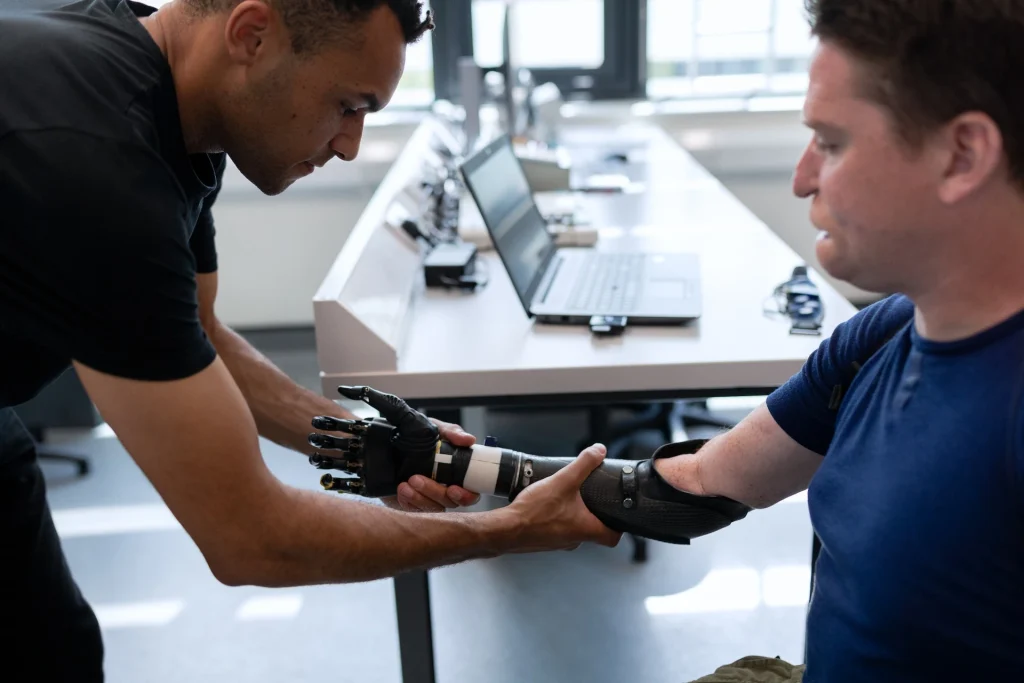The Role of Occupational Therapy in Improving Quality of Life for People with Disabilities
In a world that constantly strives for inclusivity and equality, it’s essential to acknowledge and support individuals with disabilities. These individuals face unique challenges and barriers that can affect their quality of life. However, there’s a remarkable profession that plays a crucial role in addressing these challenges: occupational therapy. Occupational therapists are dedicated to helping people with disabilities lead fulfilling lives by improving their ability to engage in daily activities. In this post, we will explore the invaluable role of occupational therapy in enhancing the quality of life for people with disabilities.
What is Occupational Therapy?
Occupational therapy (OT) is a healthcare profession that focuses on helping individuals achieve. And maintain independence in their daily activities or occupations. These occupations encompass everything from basic self-care tasks like dressing. And eating to more complex activities like working, driving, and participating in leisure activities.. Occupational therapists work with people of all ages and backgrounds, tailoring their interventions to each individual’s unique needs and goals.
The Role of Occupational Therapy in Improving Quality of Life
Assessing and Enhancing Functionality
One of the primary roles of occupational therapists is to assess an individual’s current level of functionality and identify areas where improvement is needed. They use various assessments and evaluations to understand the person’s physical, cognitive, and emotional abilities. By gaining this comprehensive insight, occupational therapists can create personalized treatment plans that target specific areas for improvement.
For example, an individual with a spinal cord injury may struggle with mobility and self-care. An occupational therapist would work with them to develop strategies. And provide assistive devices that allow for greater independence, such as adaptive equipment or home modifications.
Promoting Independence
Independence is a key factor in improving the quality of life for people with disabilities. Occupational therapists work diligently to help individuals regain or maintain their independence in daily activities. They focus on teaching adaptive techniques, providing assistive devices, and modifying environments to make tasks more manageable.
For someone with a visual impairment, OT may involve teaching skills such as using a white cane for navigation, braille reading, or using screen reader technology to access digital content. These interventions empower individuals to carry out essential tasks on their own, boosting their self-esteem and overall quality of life.
Enhancing Mental Health and Well-being
The emotional and psychological well-being of individuals with disabilities is just as crucial as their physical capabilities. Occupational therapy addresses mental health challenges that can arise due to disability, such as depression, anxiety, and low self-esteem. Therapists employ various strategies, including counseling, stress management techniques, and social skills training, to help individuals cope with these issues effectively.
Moreover, engaging in meaningful activities can have a profound impact on mental health. Occupational therapists help individuals identify and pursue activities that bring them joy and satisfaction, contributing to an overall sense of well-being.
Facilitating Community Integration
Social isolation and limited community participation are common challenges for people with disabilities. Occupational therapists play a vital role in facilitating community integration by helping individuals develop the skills and confidence needed to engage in social and recreational activities.
For example, an occupational therapist may work with a young adult with autism spectrum disorder to improve their social skills and help them navigate social situations. By doing so, they empower the individual to build meaningful relationships and participate more fully in community life.
Assisting with Work and Education
For many people with disabilities, the ability to work or pursue education is essential for a fulfilling life. Occupational therapists collaborate with individuals to overcome barriers in these areas. They provide vocational rehabilitation services, job training, and assistive technology to support individuals in finding and maintaining employment.
In educational settings, occupational therapists work with students with disabilities to ensure they can access and participate in the curriculum. This might involve modifying classroom materials, providing sensory integration therapy, or teaching self-regulation techniques to help students succeed academically.
Customizing Adaptive Equipment
Adaptive equipment and assistive technology can be life-changing for people with disabilities. Occupational therapists are experts in assessing the need for and customizing these devices to match an individual’s unique requirements. Whether it’s a specialized wheelchair, communication device, or computer software, OTs ensure that these tools empower individuals to live more independently and engage in daily life fully.
Ultimately,
Occupational therapy stands as a beacon of hope and empowerment for individuals with disabilities, offering them the chance to reclaim their independence and enrich their quality of life. Through personalized interventions addressing physical, emotional, cognitive, and social aspects, occupational therapists become catalysts for positive change. They equip individuals with the essential “hand grippers” of life—the tools, strategies, and skills needed to grasp their aspirations and participate actively in society. As the world becomes more inclusive and compassionate, the invaluable role of occupational therapy continues to strengthen the bonds of understanding and support, fostering a brighter future for all individuals, regardless of their abilities.

